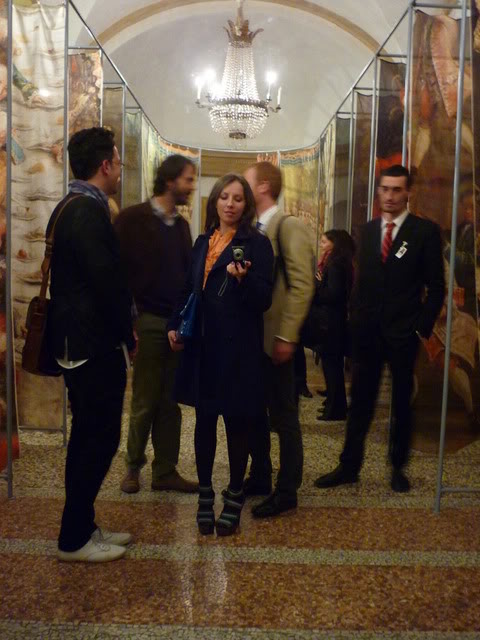‘A dream in sepia and eau-de-nil ascends
from the ground as a great wish for calm. And
the wish is green in season, hazy like meadow-sweet,
downy & soft waving among the reeds, the
cabinet of Mr Heath. Precious vacancy pales in
this studious form, the stupid slow down & become
wise with inertia, and instantly the prospect of
money is solemnised to the great landscape.
It actually glows like a stream of evening sun,
value become coinage fixed in the grass crown.
The moral drive isn't
quick enough, the greasy rope-trick
has made payment an edge of rhetoric;
the conviction of merely being
right, that has
marched into the patter of balance.'
from the ground as a great wish for calm. And
the wish is green in season, hazy like meadow-sweet,
downy & soft waving among the reeds, the
cabinet of Mr Heath. Precious vacancy pales in
this studious form, the stupid slow down & become
wise with inertia, and instantly the prospect of
money is solemnised to the great landscape.
It actually glows like a stream of evening sun,
value become coinage fixed in the grass crown.
The moral drive isn't
quick enough, the greasy rope-trick
has made payment an edge of rhetoric;
the conviction of merely being
right, that has
marched into the patter of balance.'
from ‘A New Tax on the Counter-Earth’ by J.H. Prynne
Woke this morning very abruptly after rolling onto the sharp corners of the five hundred and something page volume of J.H. Prynne’s Poems. Until about a week ago, I had been neglecting Prynne for some time. It isn't so much that I had forgotten about him, but rather that I had to push his massive tome to the back of the bookshelf to make room for new additions. However, a recent glance through a friend's photo album unearthed a snapshot of said friend and Mr. Prynne, which only made me long to thumb through the pages of his words again. So back I went, tail between my legs, seeking forgiveness.
And what forgiveness I did find! Prynne's gift for language is paranormal. His poems are like the Centre Pompidou: the skeleton, the construction supporting the structure in its entirety, is as visible as the building itself. Yet this detracts in no way from the overall essence of the building, from the feeling of it. Each is as integral to the other and neither could exist independently, however frequently we take this element for granted. But with a building like the Pompidou, these assumptions are turned upside down (or inside out) and what we typically take for granted is displayed in all its magnificence. The skeleton then becomes as much a part of the spectacle as the normally fêted exterior.
Prynne's poems scream architecture. The scent of construction and meticulous craftsmanship is pervasive, almost overwhelming. And yet there's a delicacy, an effortless crisp lightness to his writing that makes it such a joy to read. Being unable to resist such an obvious enticement, this morning I turned to page 172 and, not having anyone to read to me, read the poem (the above quote is culled from the poem I read) out loud to no one but myself. Without wanting to belittle his subject matter, I find Prynne to be one of the few poets of my knowledge who has the ability to move through cadence, rhythm, tone, and resonance alone. He moves with language. And reading this morning, I let the sound and the feel of the words carry me, even ignoring the intended meaning of the poem, simply enjoying the feel of the words, the syllables, the consonants and vowels, sticky like toffee in my mouth.
A good way to wake up.




2 comments:
i love your writing-so pretty!!
did you go see prynne at pompidou a couple of days ago?
How sweet! Thank you.
I didn't know he was reading in Paris - such a shame to have missed it as he rarely (if ever) gives readings in the UK.
Post a Comment